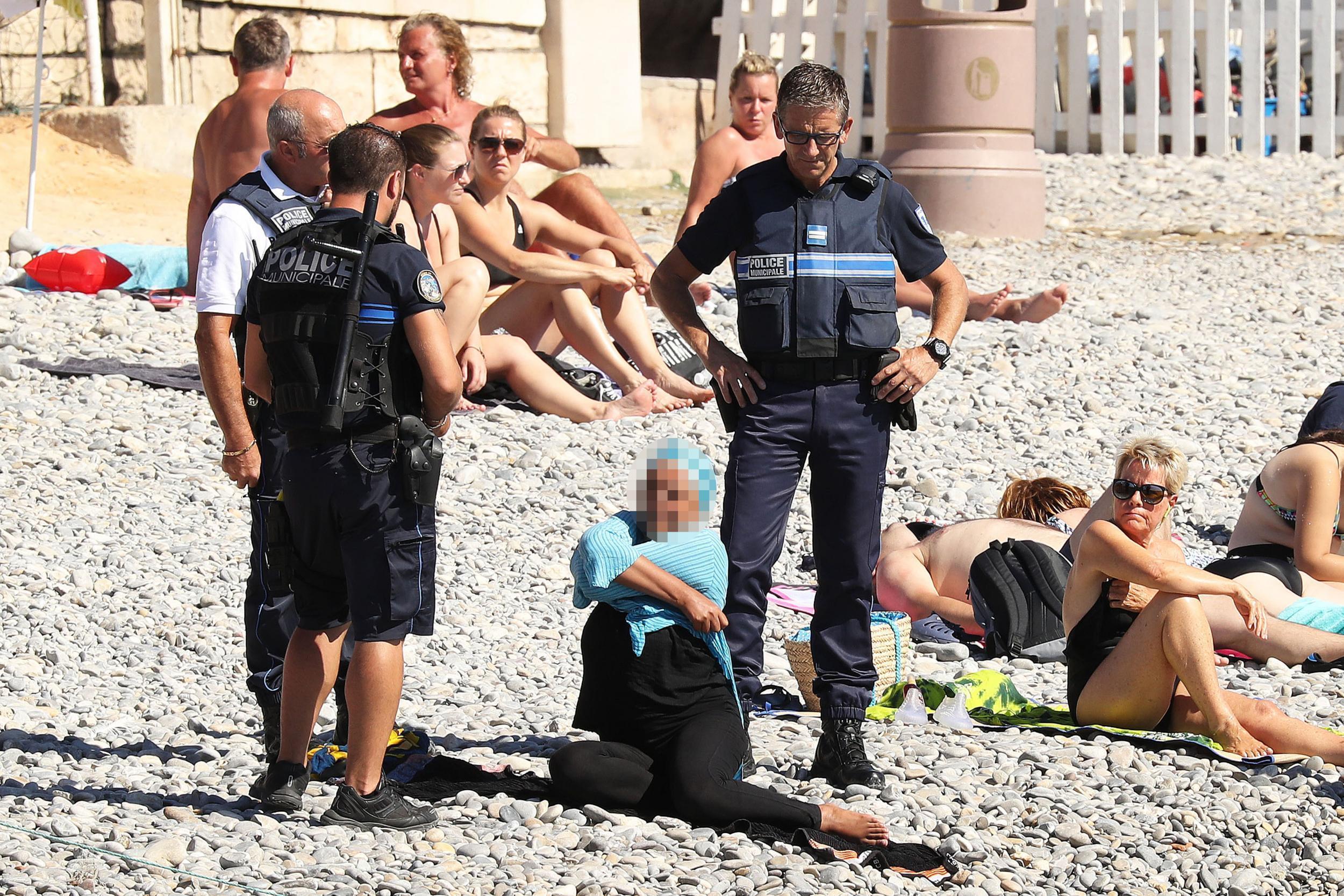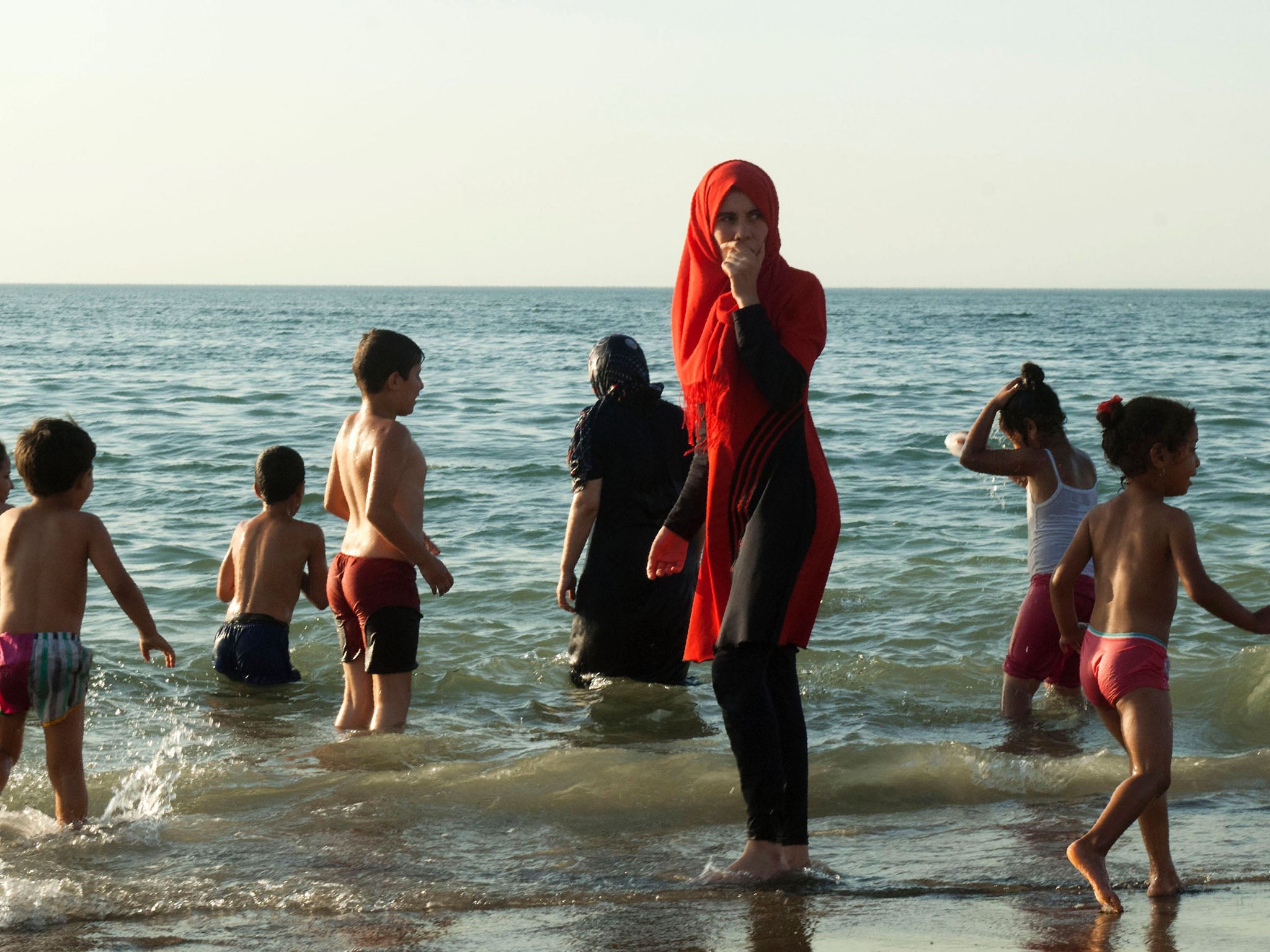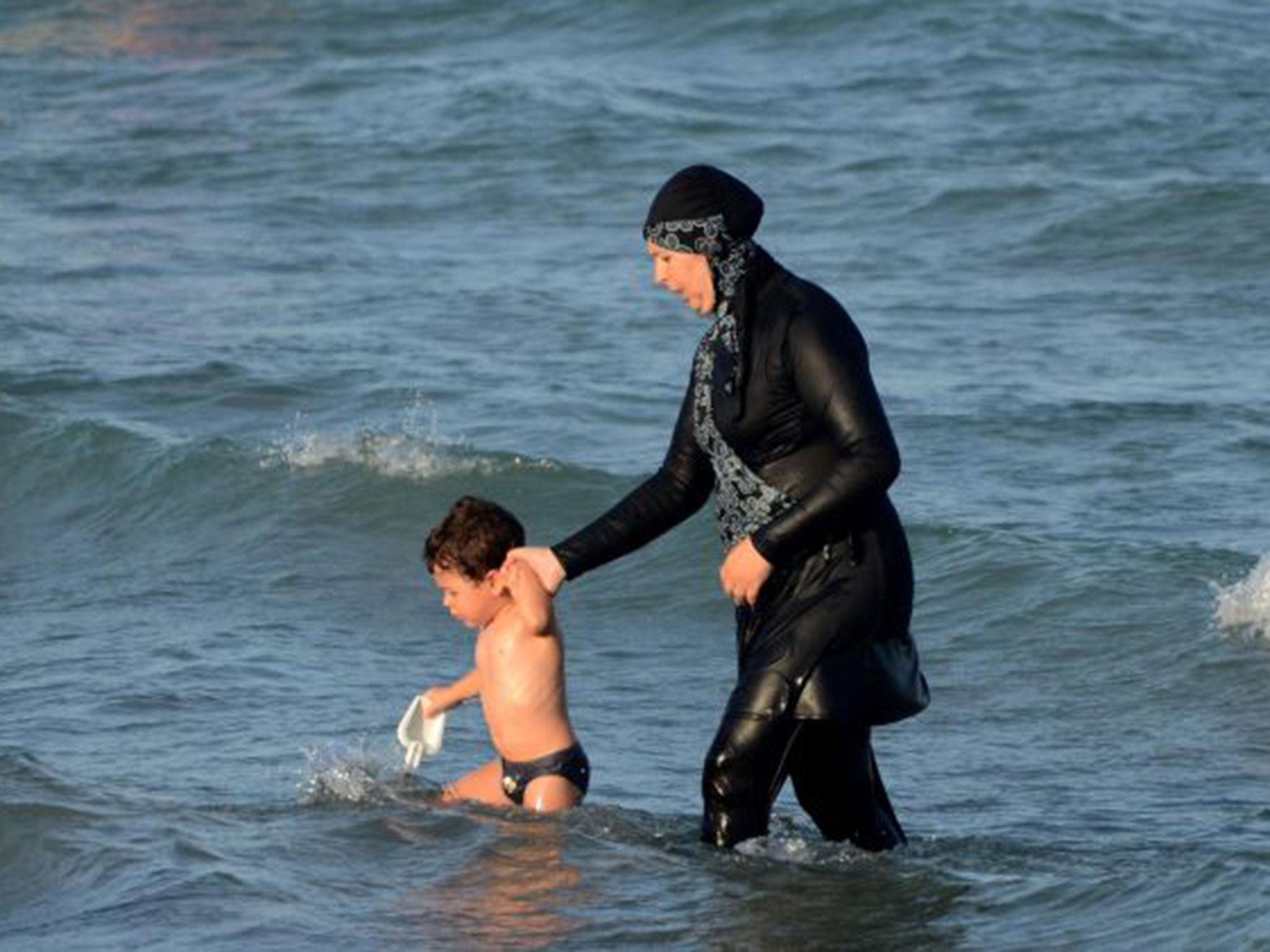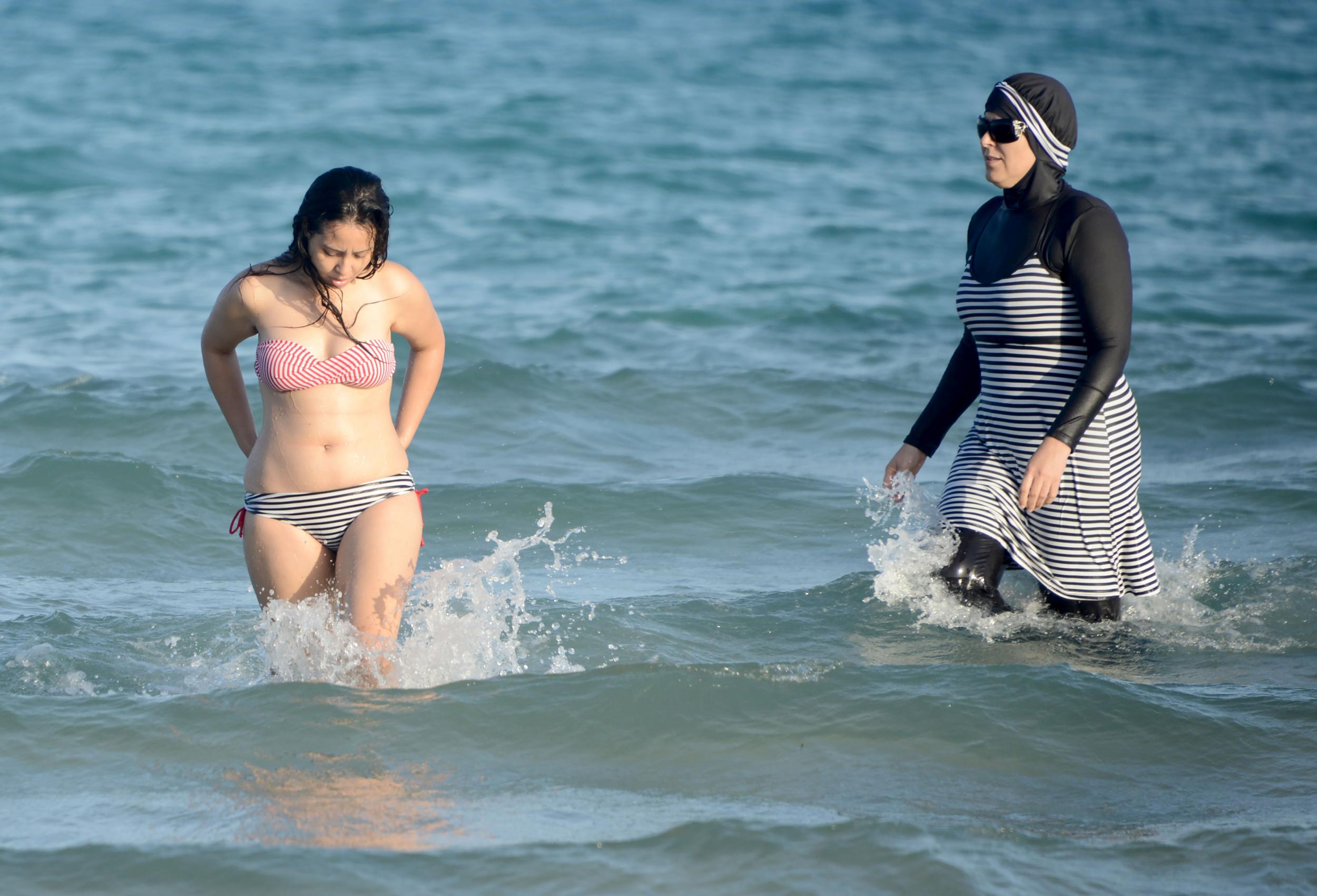Burkini ban: Why is France arresting Muslim women for wearing full-body swimwear and why are people so angry?
The Big Question: As more towns are bringing in bans - what impact are they having on France?

Your support helps us to tell the story
From reproductive rights to climate change to Big Tech, The Independent is on the ground when the story is developing. Whether it's investigating the financials of Elon Musk's pro-Trump PAC or producing our latest documentary, 'The A Word', which shines a light on the American women fighting for reproductive rights, we know how important it is to parse out the facts from the messaging.
At such a critical moment in US history, we need reporters on the ground. Your donation allows us to keep sending journalists to speak to both sides of the story.
The Independent is trusted by Americans across the entire political spectrum. And unlike many other quality news outlets, we choose not to lock Americans out of our reporting and analysis with paywalls. We believe quality journalism should be available to everyone, paid for by those who can afford it.
Your support makes all the difference.Why are we asking this now?
What started as a temporary rule brought in by a single resort in France has spread along the country’s world-famous Riviera and beyond to become a lightning rod for a multitude of divisive issues.
The imposition of local by-laws on swimwear may seem minor but the “burkini bans” have tapped into division over immigration, sexism, religion and extremism as the country continues to reel from a series of deadly terror attacks by Isis supporters.
The debate is seeing France’s constitutional secularism pitted against freedom of religion, with emotions running high on both sides.
Proponents argue the move preserves “security and secularism”, while critics have condemned it as a sexist attack on human rights and a valuable recruiting tool for Isis and other jihadist groups propagating the idea of a war on Muslims in the West.
Why has the ban been implemented?
The bans have been implemented individually by various cities and communes in France’s coast, with each giving slightly different reasons.
The first city to announce the prohibition was Cannes, where mayor David Lisnard said he wanted to prohibit “beachwear ostentatiously showing a religious affiliation while France and places of religious significance are the target of terror attacks” to avoid “trouble to public order”.
A by-law said anyone wearing swimwear deemed not to “respect good customs and secularism” would be barred from visiting the resort’s beaches or swimming.
The second commune to announce a burkini ban, Villeneuve-Loubet, was not so direct with allusions to terror and extremism.
Its rule stipulates that only clothing that “is respectful to morality and secular principles, and in compliance with hygiene and safety rules” is allowed.
Mayor Lionnel Luca also cited unspecified “hygiene reasons” for banning full-body swimwear.
A tribunal in Nice that upheld the ban in Villeneuve-Loubet on Monday ruled that it was “necessary, appropriate and proportionate” to prevent public disorder.
None of the orders have directly mentioned burkinis – an all-encompassing term for modest swimwear that covers the body and hair – and some people have questioned whether police would enforce the ban for wetsuits, nuns’ habits and other garments.

What’s happened?
Dozens of women have been fined so far for wearing clothing deemed violate the various bans, including in Cannes and Nice.
Some have been arrested, while others have been give verbal or written warnings, and many fined around €40 (£35) each.
How widespread is it?
Authorities in at least 15 towns and cities have so far brought in bans, with the most recent being Cagnes-sur-Mer in Provence.
It announced its degree on Tuesday evening, following several nearby areas.
Many more are said to be considering drawing up similar laws, although a wave of new prohibitions is considered less likely as the summer draws to a close.
But the news of burkini bans has spread around the world, gaining support from right-wing politicians.
Germany is separately considering a nationwide ban on full-face veils, which is already enforced in Belgium.

What are people saying about it?
Right-wing politicians have praised the ban, which comes as France continues its nationwide prohibition on full-face veils in public.
Marine Le Pen, leader of the far-right Front National, claimed the “soul of France is in question”, writing in a blog: “France does not lock away a woman’s body, France does not hide half of its population under the fallacious and hateful pretext that the other half fears it will be tempted.”
But critics have compared the enforcement of the ban to repression in Saudi Arabia and Iran, arguing that ordering women what to wear is a violation of human rights in any context
Some have condemned attempted justifications by local authorities as mere “excuses” for sexist and Islamophobic discrimination.
The bans are widely perceived to be a response to increased tensions and public fears following the Nice attack, when an Isis supporter mowed down 86 people celebrating Bastille Day on 14 July, and the murder of a Catholic priest by Isis supporters.
Some rights groups have said the new laws amount to the “collective punishment” of Muslims following the terror attacks and amid friction over immigration and the refugee crisis.
France’s Human Rights League said the burkini bans are “serious and illegal attack on numerous fundamental rights” and an abuse of France’s secular principles.
Is there a backlash?
Yes. The hashtag #WTFFrance was trending on Wednesday as outrage spread around the world over photos of a Muslim being forced to remove her top by armed police on a beach in Nice.
There was widespread condemnation over the stark image of a kneeling woman taking off her top while surrounded by three male police officers, standing around her armed with guns and pepper spray.
Footage of several other incidents has provoked alarm, showing women being fined or ordered to get out of the sea, with some onlookers shouting racist or xenophobic abuse.
Some opponents have been calling for a “Burkini Day” or for flashmobs to take to France’s beaches to protest the rules.
Meanwhile, terror analysts have warned that the dispute will fuel jihadist propaganda as groups like Isis attempt to portray France and other Western countries as at war with Muslims.
“If the aim of the terrorists who took so many innocent lives in Paris, Nice and elsewhere was to foment hatred and conflict, and to provoke the French state into an overreaction, then the French authorities have more than fulfilled their unsavoury ambitions,” an Independent editorial said.
“Victimising and bullying Muslim women on holiday is not only bad PR, it is wrong in principle and entirely counterproductive.”

What is the French government’s position?
President Francois Hollande has so far avoided becoming embroiled in the dispute but the Prime Minister has shown no such concern.
Manuel Valls told the La Provence newspaper he was not in favour of a national law but condemned burkinis.
“The burkini is not a new range of swimwear, a fashion,” he said. “It is the expression of a political project, a counter-society, based notably on the enslavement of women.”
The vast majority of bans currently in place are due to come to an end at in September and it is unclear whether they will be renewed or replaced by new legislation.
Join our commenting forum
Join thought-provoking conversations, follow other Independent readers and see their replies
Comments